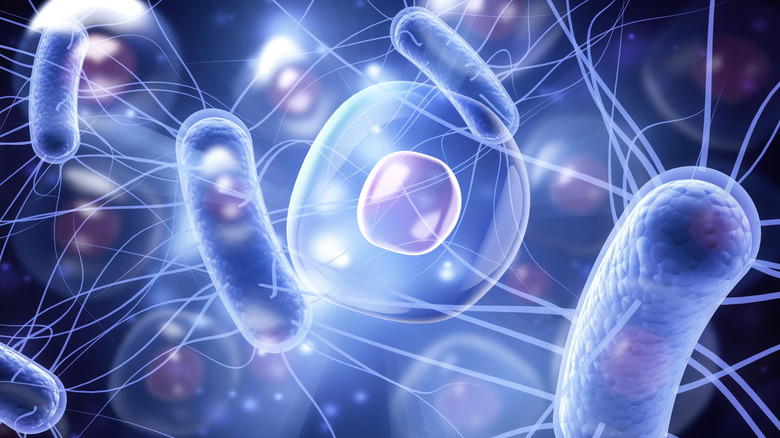The Unexpected Link Between Intermittent Fasting And Cancer
Intermittent fasting is a form of eating that involves abstaining from food for a certain number of hours. One common intermittent fasting schedule is fasting for 16 hours and eating within an eight-hour window. Some people choose to fast for longer periods of time, going for 24, 36, or 72 hours without eating (via Johns Hopkins Medicine).
Fasting changes several bodily functions. Putting it simply, when you eat, your cells tend to grow; when you fast, you're shutting down that growth process and allowing other processes to take place. Fasting expert and nephrologist Dr. Jason Fung explains to MindBodyGreen that when your body realizes that it has entered into a "no food" zone, it begins a clean-up phase called autophagy where old cells are broken down and removed. Without the cleaning up that fasting provides, cells can't do what they're supposed to do, and this can result in cell death and several health conditions, including cancer.
Fasting triggers processes that help fight cancer
Fasting may prevent or slow cancer growth because it triggers the regeneration of the immune system and decreases the amount of glucose the body produces. More importantly, it increases the production of cells that clean up (or destroy) cancer cells, according to Healthline.
Dr. Fung explains that sugar, processed foods, and eating constantly are lifestyle factors that contribute to cancer. He also told MindBodyGreen that in order to reach the autophagy stage, you need to fast for 16 hours or more. He added that the body needs autophagy because that is the first step in the "rejuvenation process" that gets rid of old cells, allowing new ones can replace them. It is worth noting that while some studies show that autophagy may slow and possibly prevent cancer, other research has suggested that it may have the opposite effect on late-stage cancer (via MindBodyGreen).


